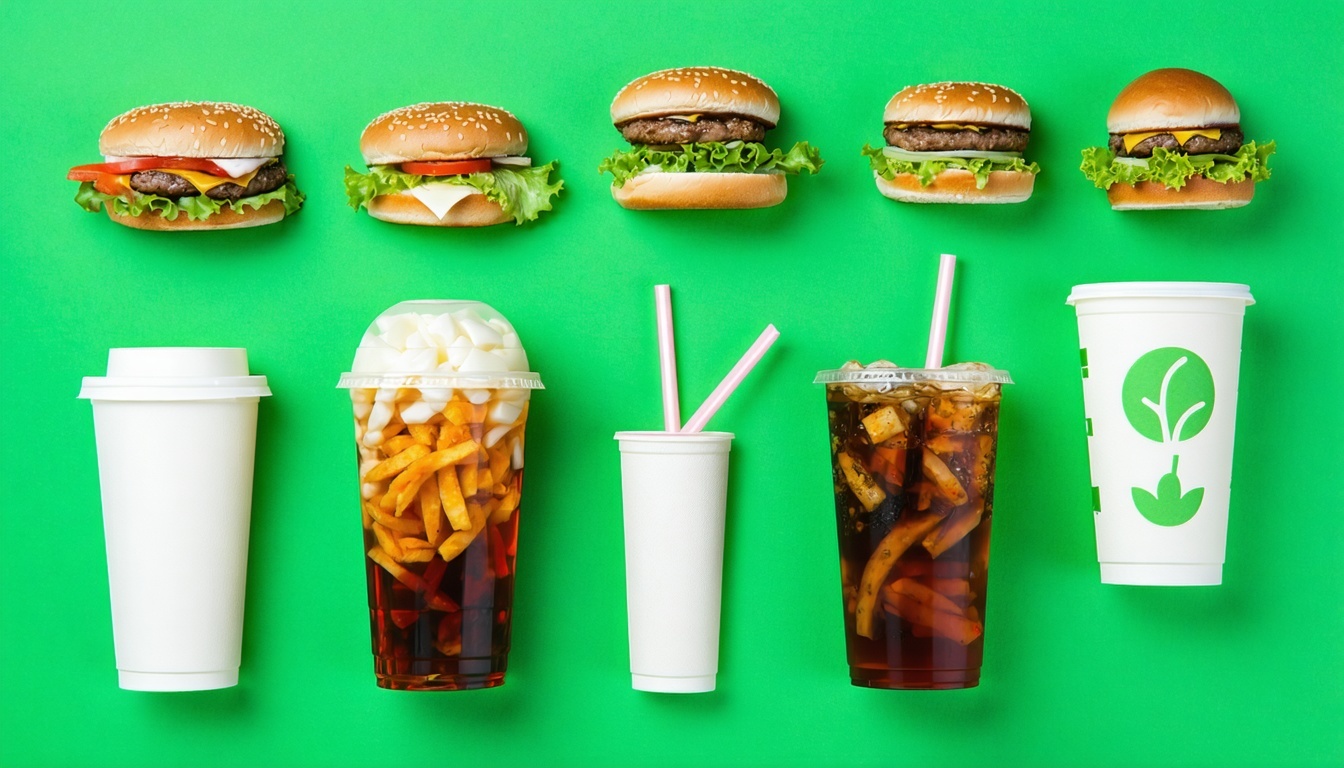Sustainable Packaging Solutions for the Fast Food Industry

Revolutionizing fast food packaging with sustainable solutions to protect our planet and satisfy customers.
The Environmental Impact of Conventional Fast Food Packaging
Conventional fast food packaging, often made from non-biodegradable materials like plastic and styrofoam, contributes significantly to environmental pollution. These materials can take hundreds of years to decompose, filling up landfills and polluting oceans.
Additionally, the production of traditional packaging materials consumes large amounts of energy and natural resources, further exacerbating their environmental footprint. The widespread use and disposal of these materials have led to an urgent need for more sustainable alternatives.
Innovative Materials for Sustainable Fast Food Packaging
The fast food industry is exploring various innovative materials to replace conventional packaging. Biodegradable plastics, made from renewable resources like cornstarch or sugarcane, are gaining popularity. These materials break down more easily in the environment compared to traditional plastics.
Another promising option is compostable packaging made from plant fibers such as bamboo, palm leaves, and hemp. These materials not only reduce waste but also support agricultural byproducts, promoting a circular economy.
Benefits of Adopting Sustainable Packaging in the Fast Food Industry
Adopting sustainable packaging offers numerous benefits for the fast food industry. It can significantly reduce the environmental impact of packaging waste, leading to a cleaner planet. Moreover, it can enhance the brand image of fast food companies, appealing to eco-conscious consumers.
Sustainable packaging can also lead to cost savings in the long run. As the demand for eco-friendly materials increases, economies of scale can make these options more affordable. Additionally, companies may benefit from regulatory incentives and avoid potential fines related to environmental compliance.
Challenges and Solutions in Implementing Eco-Friendly Packaging
Transitioning to eco-friendly packaging is not without challenges. One major hurdle is the higher initial cost of sustainable materials compared to conventional plastics. Small and medium-sized enterprises may find it difficult to absorb these costs without passing them on to consumers.
However, solutions exist to mitigate these challenges. Collaborations with packaging suppliers and investing in research and development can drive down costs. Government subsidies and incentives for sustainable practices can also play a crucial role in encouraging wider adoption.
The Future of Sustainable Packaging in Fast Food
The future of sustainable packaging in the fast food industry looks promising. Advances in material science and increased consumer awareness are driving innovation in this space. We can expect to see more fast food brands adopting eco-friendly packaging solutions as they strive to meet their sustainability goals.
Furthermore, regulatory pressures and global movements towards sustainability will likely accelerate this transition. The fast food industry has a unique opportunity to lead by example, demonstrating that it is possible to offer convenient, delicious food while minimizing environmental impact.